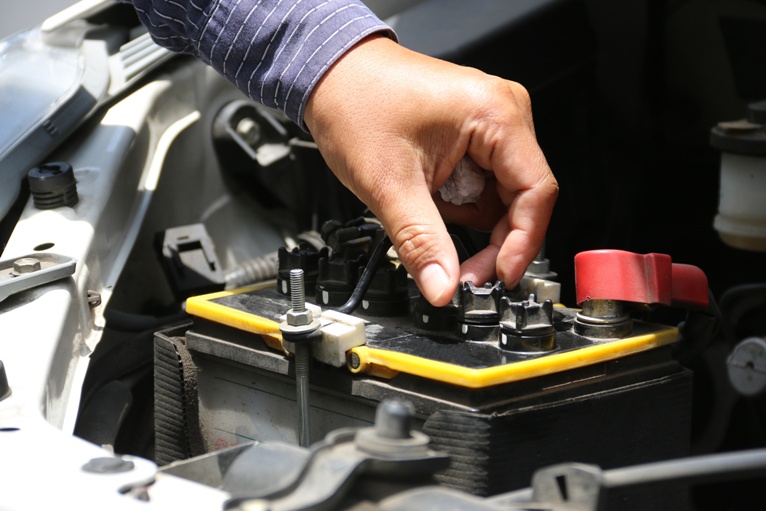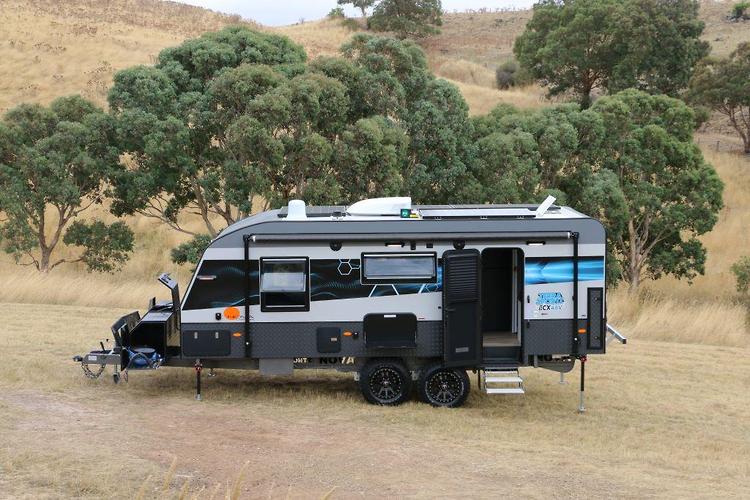Exploring the Power and Performance of Electric Scooter Batteries
As the demand for sustainable transportation options continues to grow, electric scooters have become increasingly popular around the world. Offering a convenient and eco-friendly alternative to traditional gasoline-powered scooters, electric scooters rely on high-performance batteries to deliver power and efficiency. In this article, we will explore the power and performance of electric scooter batteries, shedding light on the technology behind these innovative devices.
1. Battery Types and Chemistry
Electric scooter batteries come in various types, each with its own advantages and limitations. The most commonly used battery chemistries in electric scooters include lead-acid, lithium-ion, nickel-metal hydride (NiMH), and solid-state batteries.
Lead-acid batteries are the oldest and cheapest option for electric scooters. However, they are heavy, have a limited lifespan, and require frequent maintenance. Lithium-ion batteries, on the other hand, offer higher energy density, longer lifespan, and lighter weight. They have become the preferred choice for most electric scooter manufacturers due to their superior performance.
2. Power Output and Range
The power output of an electric scooter battery is crucial for determining its performance. It is measured in volts (V) and determines the maximum speed an electric scooter can reach. The higher the voltage, the faster the scooter can go. Most electric scooters operate on a 48V or 60V system.
The range of an electric scooter refers to the distance it can travel on a single charge. This depends on the battery’s capacity, measured in ampere-hours (Ah), and the efficiency of the scooter. Lithium-ion batteries are known for their higher energy density, allowing them to provide longer ranges compared to other battery types.
3. Charging Time
Charging time is an important factor to consider when using electric scooters. Nobody wants to wait for hours to get back on the road. The charging time of electric scooter batteries varies depending on the battery chemistry and charger specifications.
Lead-acid batteries have longer charging times compared to lithium-ion batteries. They can take several hours to fully charge. In contrast, lithium-ion batteries can be charged much faster, typically within 2 to 4 hours. Additionally, advancements in fast-charging technologies are improving charging times for all types of electric scooter batteries.
4. Battery Management Systems
To ensure the optimum performance and lifespan of electric scooter batteries, manufacturers incorporate advanced battery management systems (BMS). BMS monitors and controls various parameters such as temperature, voltage, current, and state of charge to protect the battery from overcharging, over-discharging, and overheating.
BMS also allows for regenerative braking, a process where the scooter’s kinetic energy is converted into electrical energy and stored in the battery during deceleration. This feature helps increase the scooter’s range and promotes energy efficiency.
5. Maintenance and Lifespan
Battery maintenance plays a crucial role in extending the lifespan of electric scooter batteries. While lead-acid batteries require regular maintenance, such as checking electrolyte levels and cleaning terminals, lithium-ion batteries are virtually maintenance-free.
The lifespan of an electric scooter battery depends on various factors, including battery chemistry, usage patterns, and charging habits. On average, lithium-ion batteries can last between 2 to 4 years or around 500 to 1000 charge cycles before their capacity significantly decreases.
Electric scooter batteries are the heart of these eco-friendly and convenient transportation devices. From the type of battery chemistry to power output, range, charging time, and maintenance, various factors influence their power and performance. As technology continues to advance, we can expect even more efficient and powerful batteries to enhance the electric scooter experience, making it an increasingly popular choice for urban commuters worldwide.
-
 Electric vehicles (EVs) have become increasingly popular in recent years as a more sustainable and environmentally-friendly mode of transportation. One of the key components that enable the operation of EVs is the lithium battery. Lithium batteries have gained significant attention due to their high energy density and long lifespan. However, there are several advantages and challenges associated with the use...Weiterlesen
Electric vehicles (EVs) have become increasingly popular in recent years as a more sustainable and environmentally-friendly mode of transportation. One of the key components that enable the operation of EVs is the lithium battery. Lithium batteries have gained significant attention due to their high energy density and long lifespan. However, there are several advantages and challenges associated with the use...Weiterlesen -
 Introduction: As the global energy demand continues to rise, it has become imperative to explore innovative solutions to meet this growing need sustainably. The integration of smart grids with lithium batteries presents a promising avenue for revolutionizing energy management. This article delves into the potential benefits, challenges, and future prospects of this integration. 1. Benefits of integrating smart grids...Weiterlesen
Introduction: As the global energy demand continues to rise, it has become imperative to explore innovative solutions to meet this growing need sustainably. The integration of smart grids with lithium batteries presents a promising avenue for revolutionizing energy management. This article delves into the potential benefits, challenges, and future prospects of this integration. 1. Benefits of integrating smart grids...Weiterlesen -
 Während sich die Welt auf nachhaltigere Energiequellen verlagert, sucht auch die Automobilindustrie nach Möglichkeiten, ihre Auswirkungen auf die Umwelt zu reduzieren. Eine vielversprechende Lösung ist die Lithium-Starterbatterie. Im Vergleich zu herkömmlichen Blei-Säure-Batterien bieten Lithium-Starterbatterien zahlreiche Vorteile, darunter eine längere Lebensdauer, schnelleres Laden und eine bessere Leistung bei extremen Temperaturen. Die Lebensdauer einer Lithium-Starterbatterie...Weiterlesen
Während sich die Welt auf nachhaltigere Energiequellen verlagert, sucht auch die Automobilindustrie nach Möglichkeiten, ihre Auswirkungen auf die Umwelt zu reduzieren. Eine vielversprechende Lösung ist die Lithium-Starterbatterie. Im Vergleich zu herkömmlichen Blei-Säure-Batterien bieten Lithium-Starterbatterien zahlreiche Vorteile, darunter eine längere Lebensdauer, schnelleres Laden und eine bessere Leistung bei extremen Temperaturen. Die Lebensdauer einer Lithium-Starterbatterie...Weiterlesen -
 Einleitung In der heutigen schnelllebigen Welt, in der die Abhängigkeit von Technologie von Tag zu Tag zunimmt, ist es von entscheidender Bedeutung, für Notfälle einen Notfallplan zu haben. Eine der kritischsten Situationen, die auftreten können, ist eine plötzliche Autopanne mitten im Nirgendwo, die Sie hilflos und hilflos zurücklässt. Mit dem Aufkommen von Notstarterbatterien müssen Sie jedoch...Weiterlesen
Einleitung In der heutigen schnelllebigen Welt, in der die Abhängigkeit von Technologie von Tag zu Tag zunimmt, ist es von entscheidender Bedeutung, für Notfälle einen Notfallplan zu haben. Eine der kritischsten Situationen, die auftreten können, ist eine plötzliche Autopanne mitten im Nirgendwo, die Sie hilflos und hilflos zurücklässt. Mit dem Aufkommen von Notstarterbatterien müssen Sie jedoch...Weiterlesen -
 In today's fast-paced world, reliable power supply is crucial for the functioning of various electronic devices. The advancements in technology have led to the development of high-performance batteries, one such battery is the 48V LiFePO4 battery. LiFePO4 or Lithium Iron Phosphate battery is a type of rechargeable battery that has gained popularity due to its excellent performance and extended...Weiterlesen
In today's fast-paced world, reliable power supply is crucial for the functioning of various electronic devices. The advancements in technology have led to the development of high-performance batteries, one such battery is the 48V LiFePO4 battery. LiFePO4 or Lithium Iron Phosphate battery is a type of rechargeable battery that has gained popularity due to its excellent performance and extended...Weiterlesen -
 Einleitung: Ein Bootsabenteuer kann für viele Menschen ein aufregendes Erlebnis sein. Ob Sie auf ruhigen Gewässern segeln oder den Nervenkitzel von Wassersportarten genießen, Boote bieten eine einzigartige Gelegenheit, mit der Natur in Kontakt zu kommen und sich vom Stress des Alltags zu erholen. Um jedoch sicherzustellen, dass Ihr Boot reibungslos und zuverlässig funktioniert, ist es von entscheidender Bedeutung, über eine...Weiterlesen
Einleitung: Ein Bootsabenteuer kann für viele Menschen ein aufregendes Erlebnis sein. Ob Sie auf ruhigen Gewässern segeln oder den Nervenkitzel von Wassersportarten genießen, Boote bieten eine einzigartige Gelegenheit, mit der Natur in Kontakt zu kommen und sich vom Stress des Alltags zu erholen. Um jedoch sicherzustellen, dass Ihr Boot reibungslos und zuverlässig funktioniert, ist es von entscheidender Bedeutung, über eine...Weiterlesen -
 In recent years, the demand for energy storage solutions has been increasing. With the rise of renewable energy sources such as solar and wind power, there is a need for reliable and efficient energy storage systems. One such solution is the use of lithium iron phosphate (LiFePO4) batteries. These batteries are known for their high energy density, long cycle life,...Weiterlesen
In recent years, the demand for energy storage solutions has been increasing. With the rise of renewable energy sources such as solar and wind power, there is a need for reliable and efficient energy storage systems. One such solution is the use of lithium iron phosphate (LiFePO4) batteries. These batteries are known for their high energy density, long cycle life,...Weiterlesen


